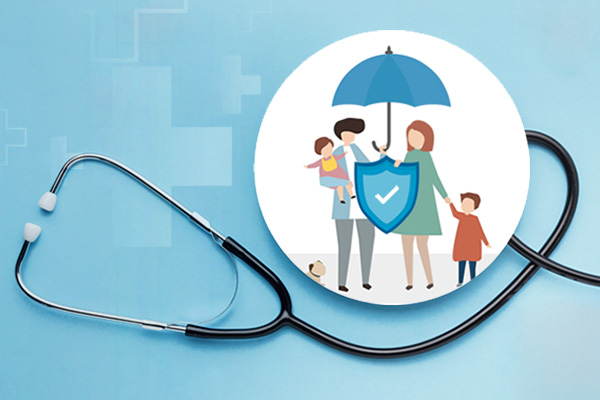Choosing the right health insurance plan can feel overwhelming, especially with the myriad of options available today. Whether you are navigating the market for the first time or looking to switch plans, understanding how to evaluate your choices is crucial. Here are ten essential tips to guide you in selecting the best health insurance plan for your needs.

1. Assess Your Health Needs
The first step in choosing a health insurance plan is to assess your personal health needs. Consider the following:
- Current Health Conditions: Do you have any chronic conditions that require ongoing treatment?
- Frequency of Doctor Visits: How often do you visit healthcare providers?
- Medications: Do you take any prescription medications that need coverage?
Understanding your health needs will help you identify which plans will provide the necessary coverage.
2. Understand Different Types of Plans
Familiarize yourself with the various types of health insurance plans available:
- Health Maintenance Organization (HMO): Requires members to choose a primary care physician and get referrals for specialists. Typically lower premiums but less flexibility.
- Preferred Provider Organization (PPO): Offers more flexibility in choosing healthcare providers without needing referrals. Higher premiums are usually associated with these plans.
- Exclusive Provider Organization (EPO): Similar to PPOs but does not cover any out-of-network care except in emergencies.
- Point of Service (POS): Combines features of HMOs and PPOs, requiring a primary care physician while allowing out-of-network visits at a higher cost.
Knowing the differences can help you determine which plan aligns best with your preferences.
3. Evaluate Costs Beyond Premiums
While the monthly premium is an important factor, it’s crucial to look beyond just that:
- Deductibles: The amount you must pay out-of-pocket before your insurance starts covering costs. Choose a deductible that you can realistically afford.
- Copayments and Coinsurance: Understand the fees for visits to doctors and specialists, and the percentage of costs you’ll share after meeting your deductible.
- Out-of-Pocket Maximum: This is the maximum amount you’ll pay in a year. After reaching this limit, your insurance will cover 100% of your healthcare costs.
By evaluating these costs, you can get a clearer picture of your potential financial responsibilities.
4. Check the Provider Network
A crucial aspect of health insurance is the network of providers available to you. Check:
- In-Network Providers: Make sure your preferred doctors and hospitals are included in the plan’s network.
- Specialists: If you require specialist care, ensure that there are specialists available within the network.
Choosing a plan with a comprehensive network that includes your preferred providers can help minimize out-of-pocket costs.
5. Review Coverage Options
Different plans offer various levels of coverage. Look for plans that cover essential services such as:
- Preventive Services: Many plans cover routine check-ups, vaccinations, and screenings without additional costs.
- Emergency Services: Ensure the plan provides coverage for emergency room visits and urgent care.
- Prescription Drug Coverage: Review the formulary to see which medications are covered and at what costs.
Having comprehensive coverage can save you money and ensure that you receive the care you need.
6. Understand the Fine Print
Health insurance policies can be complex, filled with terms that may not be immediately clear. Take the time to:
- Read the Summary of Benefits: This document provides a concise overview of what the plan covers and your responsibilities.
- Check for Exclusions: Be aware of services or treatments not covered by the plan.
Understanding the details can prevent unpleasant surprises when you seek care.
7. Consider Your Lifestyle
Your lifestyle and personal circumstances can influence your health insurance needs:
- Family Size: If you have a growing family, consider plans that offer good pediatric care and maternity benefits.
- Travel Plans: If you travel frequently, look for plans that provide coverage in other states or internationally.
- Work Environment: If you work in a high-risk job, consider plans that cover potential injuries or occupational health issues.
Tailoring your plan choice to your lifestyle can enhance your coverage experience.
8. Use Health Insurance Marketplaces
If you’re unsure where to start, consider using health insurance marketplaces, especially during open enrollment periods. These platforms allow you to:
- Compare Plans Side by Side: View different plans based on premium costs, coverage options, and provider networks.
- Check for Subsidies: Depending on your income, you may qualify for financial assistance to help lower your premiums.
Marketplaces can provide a comprehensive overview, making it easier to find the right plan.
9. Seek Expert Guidance
Don’t hesitate to seek help if you’re feeling overwhelmed:
- Insurance Agents or Brokers: These professionals can provide insights and recommendations based on your individual needs.
- Patient Advocates: They can help you navigate complex policies and assist in resolving issues with your insurance provider.
Getting expert advice can clarify your options and lead to a better-informed decision.
10. Reassess Annually
Health insurance needs can change from year to year. It’s important to reassess your plan annually:
- Life Changes: Major life events, such as marriage, childbirth, or changes in employment, can impact your health insurance needs.
- Policy Changes: Insurance companies may alter their plans, premiums, or coverage options annually.
Regular reassessment ensures that your health insurance remains aligned with your current situation and needs.
Conclusion
Choosing the right health insurance plan is a critical decision that can impact your financial stability and access to care. By assessing your health needs, understanding different plan types, evaluating costs, and reviewing coverage options, you can make an informed choice.
Additionally, leveraging health insurance marketplaces, seeking expert guidance, and reassessing your needs annually can further enhance your decision-making process. Remember, health insurance is not just a financial product—it’s an essential tool for managing your health and well-being. By following these ten essential tips, you can navigate the complexities of health insurance with confidence and secure a plan that best suits your needs.








